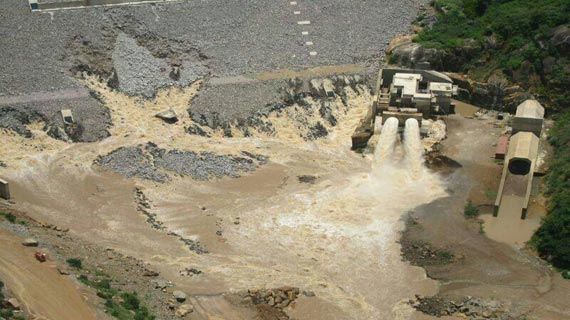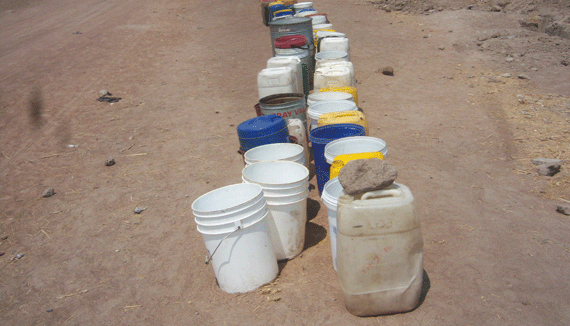
HARARE — Faced with rising flood waters in his village of Chivi in Masvingo province, Isaiah Taruvinga managed to save a pair of trousers, some of his children’s clothes and some furniture.
Towing their scant belongings, Taruvinga, his wife and five children have made their way, kilometre by kilometre, to Kushinga Secondary School, before being transferred to the main transit camp at Chingwizi.
Taruvinga and his family have joined approximately 300 other families at the camp which is growing daily and is expected to reach a capacity of more than 2 500 families. They now call tent number 16 home. They are being driven from the basin of the Tokwe-Mukosi Dam by flooding, caused by weeks of unexpected heavy rains which left houses and crops submerged, and belongings swept away.
“This year was very different from other years. Some of those previous years, there was not enough rain. But this year, we don’t know how God planned it. It was very heavy,” Taruvinga says. “When we arrived here, it was night and it was raining heavily. They erected tents because it was torrential raining.
“It is cold sometimes here. We don’t have enough blankets. We were only allocated two blankets and we are a big family. How can we share such small blankets?” While they wait for permanent resettlement plots where they can begin rebuilding their lives, Taruvinga and his family are trying to stay hopeful among the dismal conditions. Lack of facilities is a big problem.
“This camp is now too big. We have an urgent need for toilets and food. The toilet situation here is very, very bad. We don’t have enough toilets. They are getting full within some minutes. It’s really a big problem.”
With crops submerged under water in what is normally a drought-prone area, the impact on the annual harvest will be hard felt. Farmers harvest their crops once a year — in April.
With the large amount of unexpected rainfall this year, it appears a lot of the crops, which would feed families for the coming months, will be lost, compounding a chronic food shortage which has seen low crop yields over the past several years. Adding to Taruvinga’s challenges is his disability. He finds it hard to get around and needs special crutches.
- Chamisa under fire over US$120K donation
- Mavhunga puts DeMbare into Chibuku quarterfinals
- Pension funds bet on Cabora Bassa oilfields
- Councils defy govt fire tender directive
Keep Reading
“I was born disabled and I need some special equipment. I wasn’t anticipating the sudden flood. I left some of my crutches. I left my shoes. I only have one pair of shoes.”
He has had to get rubber tips for the pair of crutches he does have, and also needs special shoes if he has any chance of being mobile. It is hard, he says, getting people to understand his difficulties.
“It’s a small thing, but these crutches are my life. People don’t realise, they’re my life.”
Zimbabwe Red Cross staff and volunteers are at the camp registering families as they arrive, giving them a few days in a Red Cross tent before they are supplied tarpaulins and shown how to build their own temporary shelter.
Teams are also providing first aid, health and hygiene training, and volunteers have constructed a playground for the hundreds of children at the camp. For Taruvinga’s children, the playground is a brief respite in the hot, dusty conditions of the camp, something which cheers up Isaiah while he ponders their fate. “It’s so uncertain, we don’t know what they are planning here.”
The International Federation of Red Cross and Red Crescent Societies is supporting the Zimbabwe Red Cross in assisting the most vulnerable, such as the disabled, by releasing 263 518 Swiss francs from its Disaster Relief Emergency Fund. The funds will enable the national society to assist 3 500 people affected by the flooding over the next three months.
Planned activities include the construction of 40 emergency latrines at the camp to help improve the currently poor sanitary conditions, the distribution of mosquito nets to ward off malaria in this malaria-prone region, and the provision of 100 shelter kits and timber.
— IFRC










